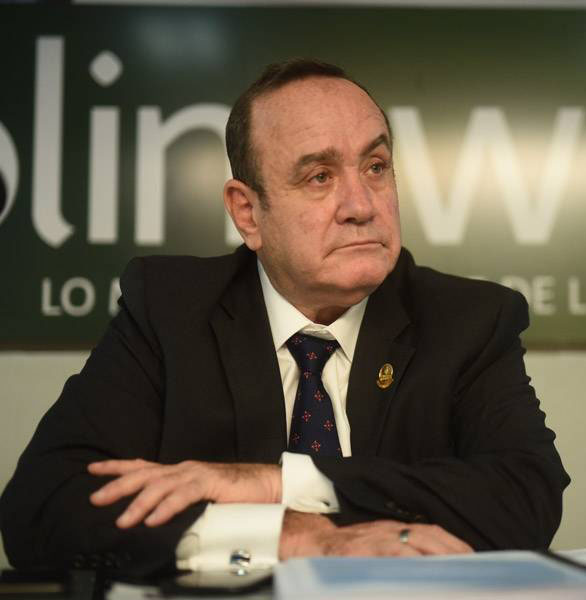GUATEMALA CITY, (Reuters) – Conservative Alejandro Giammattei was poised for a decisive victory in Guatemala’s presidential election yesterday, taking a commanding lead over his centre-left rival, former first lady Sandra Torres, preliminary results showed.
The next president is likely to face a major challenge on taking office in January after the country signed an unpopular deal with Washington to act as a buffer against illegal immigration under pressure from U.S. President Donald Trump.
With returns from three-quarters of the polling stations counted, Giammattei had secured more than 59% of the vote, while Torres had won just over 40%, according to the tally posted on the website of the country’s electoral tribunal.
Threatened with economic sanctions if it said no, the administration of outgoing President Jimmy Morales reached an accord in late July to make Guatemala a so-called safe third country for migrants, despite the endemic poverty and violence plaguing the Central American nation.
Both Giammattei and Torres criticized the deal. But it is unclear that the next leader will be able to do much to stop it.
Giammattei called the accord “bad news,” saying Guatemala is not ready to cope with a potential jump in asylum-seekers.
The agreement would require Hondurans and Salvadorans to apply for asylum in Guatemala rather than the United States. It also foresees granting U.S. visas to some Guatemalan workers.
A CID-Gallup opinion poll of 1,216 voters conducted between July 29 and Aug. 5 had given Giammattei the advantage going into the run-off vote, with 39.5% support, versus 32.4% for Torres.
The next president will inherit a country with a 60% poverty rate, widespread crime and unemployment, which have led hundreds of thousands of people to migrate north.
Many Guatemalans are fed up with the political class after investigations by the International Commission against Impunity in Guatemala (CICIG), a United Nations anti-corruption body, led to the arrest of then-President Otto Perez in 2015, and then threatened to unseat his successor Morales, a former TV comedian.
Morales narrowly escaped impeachment, and the CICIG also went after Torres for suspected campaign finance irregularities. As a candidate, she is currently immune from prosecution.
Both candidates have vowed to fight corruption – albeit without “foreign interference,” an apparent nod to the CICIG.
Giammattei pledged to run an honest government as he voted.
“We’ll battle corruption from the very first day,” he said.
Morales, who terminated the CICIG’s mandate effective as of September, is barred by law from standing again. But the migration deal he authorized could create a legacy.
Risa Grais-Targow, Latin America director at consultancy Eurasia Group, said while the accord struck with Trump risks a popular backlash, not honoring it could expose Guatemala to U.S. taxes on remittances or tariffs on its goods.
“The next president faces a lose-lose situation when it comes to managing the deal with the United States,” she said. “That is the biggest challenge the incoming president faces.”
A poll published this week by Guatemalan newspaper Prensa Libre showed more than eight out of 10 respondents rejected the idea of the country accepting foreign migrants seeking asylum.
Giammattei promised to erect an “investment wall” on the border between Guatemala and Mexico to curb migration, and has proposed bringing back the death penalty.






